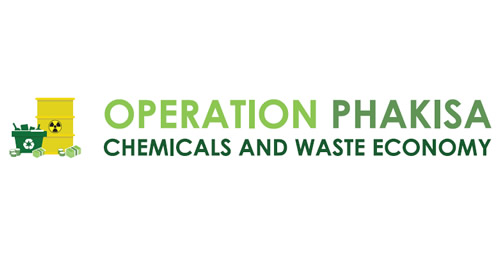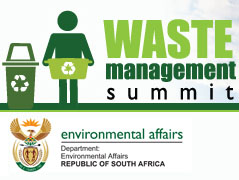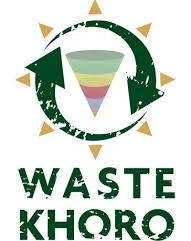Chemicals and Waste Management
Purpose
To manage and ensure chemicals and waste management policies and legislation are implemented and enforced in compliance with chemicals and waste management authorizations, directives and agreements
Functions
- To develop and implement processes and systems for the efficient and effective administration of the Department's authorisation of waste management activities andensure reduced releases of hazardous waste streams into the environmentand that contaminated land is remediated.
- To lead the development of national policies, strategies, legislation, norms and standards and build capacity in government, industry and civil society to respond to the challenges of pollution resulting from poor general waste management while also contributing towards the provision of basic waste services to all citizens of South Africa.
- To lead the development of national policies, strategies, legislation, norms and standards and monitor and evaluate the impact of policy on chemicals and waste management
- To manage, facilitate, plan and coordinate department’s and South Africa’s engagement and co-operation agreements in multi-lateral chemicals and waste agreements and related international cooperationand national programmes
Structure and contact details
Chief Directorate- General Waste and Municipal Support
Chief Directorate - Hazardous Waste Management & Licensing:
Ms Mishelle Govender
Chief Directorate - Chemicals and Waste Policy Evaluation and Monitoring:
Mr Kgauta Mokoena
Chief Directorate - Chemicals Management:
Mr Obed Baloyi
Related projects / programmes categories
Chemicals and Waste Phakisa programme
Chemicals management in the environment sector
read more...
Working on Waste
Waste management is a concurrent function amongst all spheres of government and the department of environmental affairs as the custodian for environmental management is mandated to ensuring a safe and healthy environment that is not harmful to the well-being of the citizens of the country. In recognition of this Constitutional obligation, the department promulgated the national environmental management: Waste Act 59 0f 2008 (Waste Act) and in 2010 developed the National Waste Management Strategy (NWMS).
Youth Jobs in Waste programme
During the delivery of the 2013/14 Budget Vote speech in Parliament by Minister Edna Molewa, the minister emphasised the department's concern over the growing number of unemployed young people. The waste sector has been identified as one of the critical sectors, with the potential to contribute substantially to the generation of jobs within the green economy. It is in this light that the department is increasingly expanding its programmes in job creation and enterprise development programmes within the Waste sector.
Biomass Energy
The Concept of Biomass to Energy is still at its infancy in South Africa but holds promise for the future sustainable development. Biomass is generally regarded as any carbon based material such as animal (including human) waste, plant material, food waste, algae, industrial waste such as reclaimed woody material such as planks, etc. which when processed can produce organic fuels.
Legislation
- Policies:
- Acts:
- National Environmental Management: Waste Amendment Act (26 of 2014) (G 37714)
- Constitution of the Republic of South Africa, (Act No. 108 of 1996)
- Environment Conservation Act (Act 73 of 1989)
- National Environmental Management Act, (No 107 of 1998)
- National Environmental Management Act: Air Quality Act, (No 39 of 2004), G- 7267
- National Environmental Management Act: Waste Act, (No 59 of 2008), G 32000
- Fertilizers, farm feeds, agricultural remedies and stock remedies Act 36 Of 1947
- Strategies:
Related events with media products
National Waste Management Summi
One of the objectives of the National Waste Management Summit is to introduce the recently promulgated National Environmental Management: Waste Amendment Act, 2014 (Act No. 26 of 2014) to the stakeholders and allow an opportunity for high level and technical engagement on how the Act will be taken forward. The Waste Management Summit will be held as a once off summit which may be repeated as and when required.
2015 event
Waste Management Officer's Khoro
The Waste Management Officers (WMO) Khoro (conference in the Vhenda language) is an annual conference of all government institutions dealing with waste. The aim of this conference is to provide a platform for WMOs in the three spheres of government to share information and exchange thoughts in a mutually beneficial manner. It further aims to strengthen capacity and streamline the institutional framework across government entities to enhance effective waste management.









